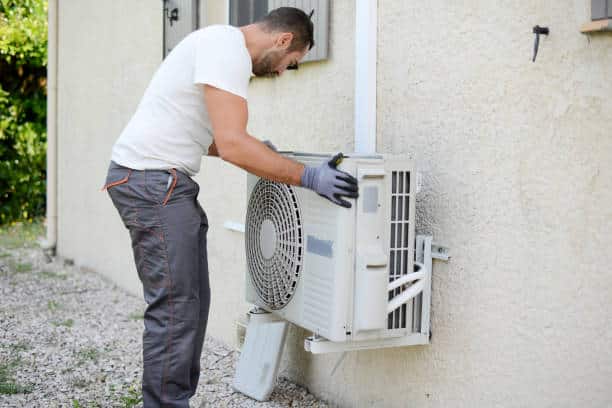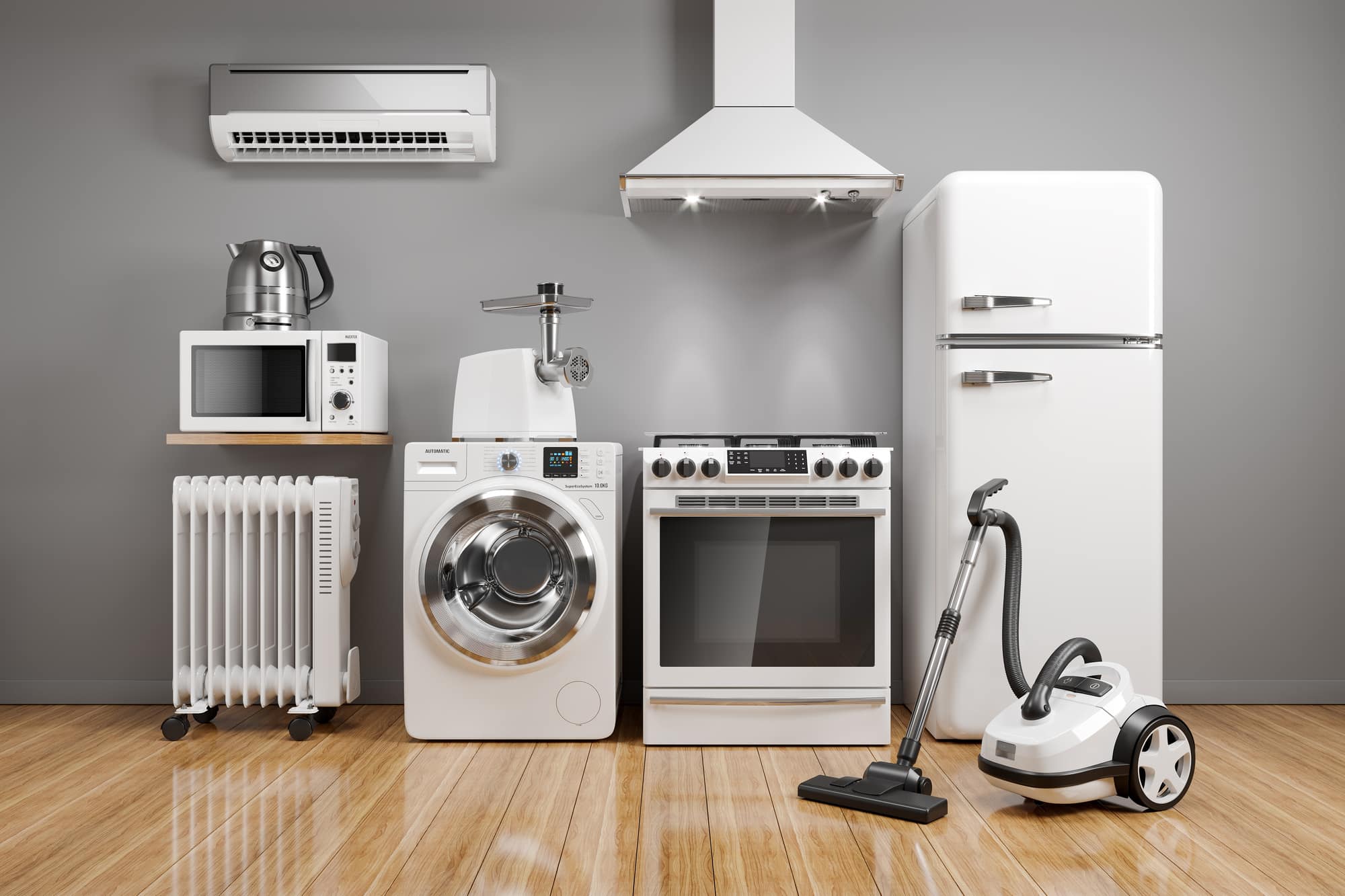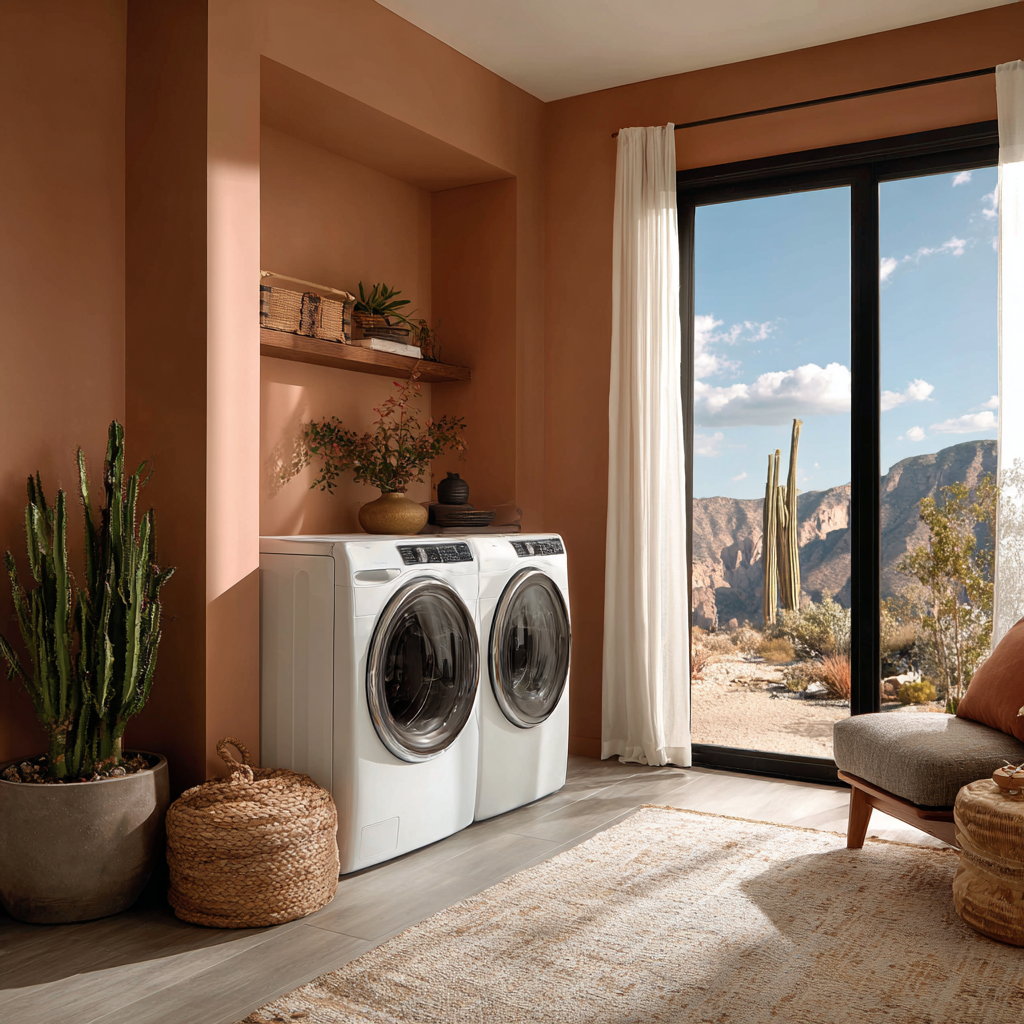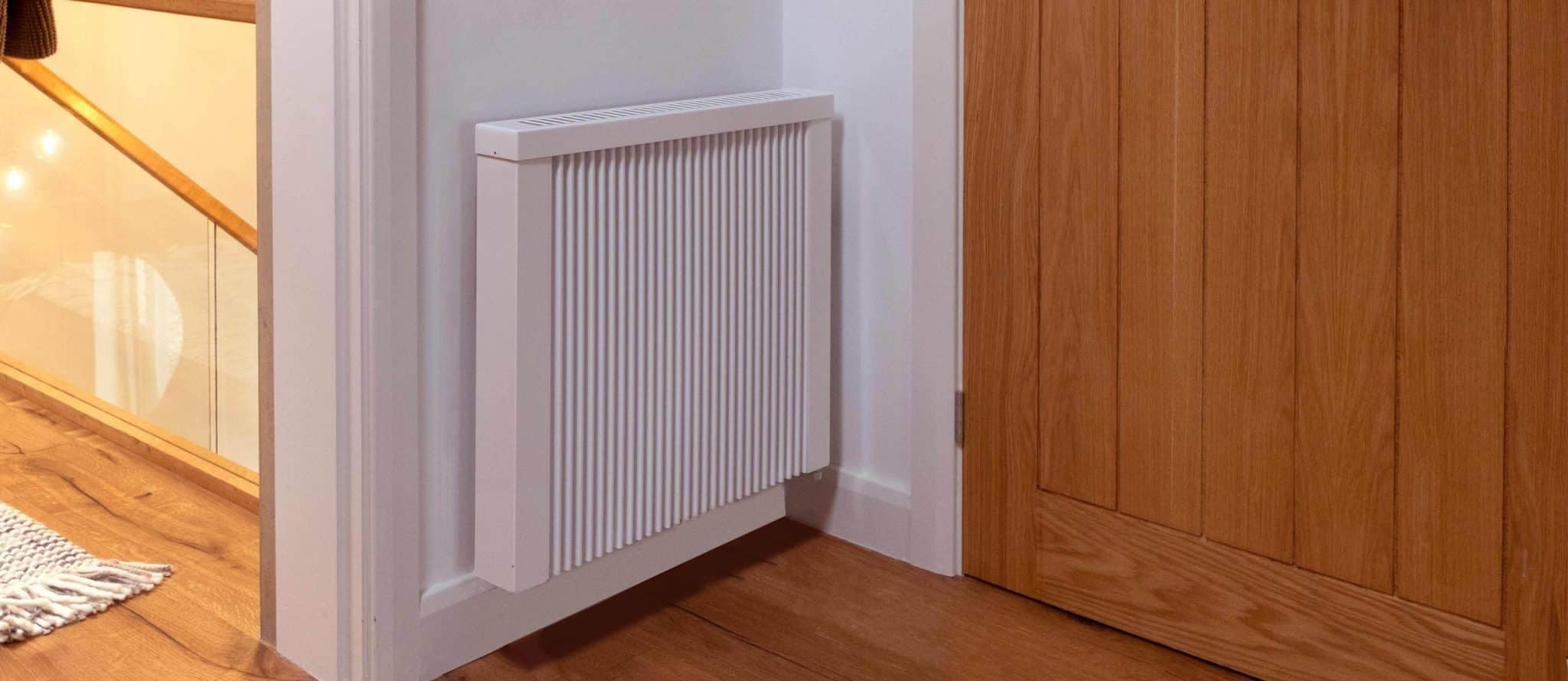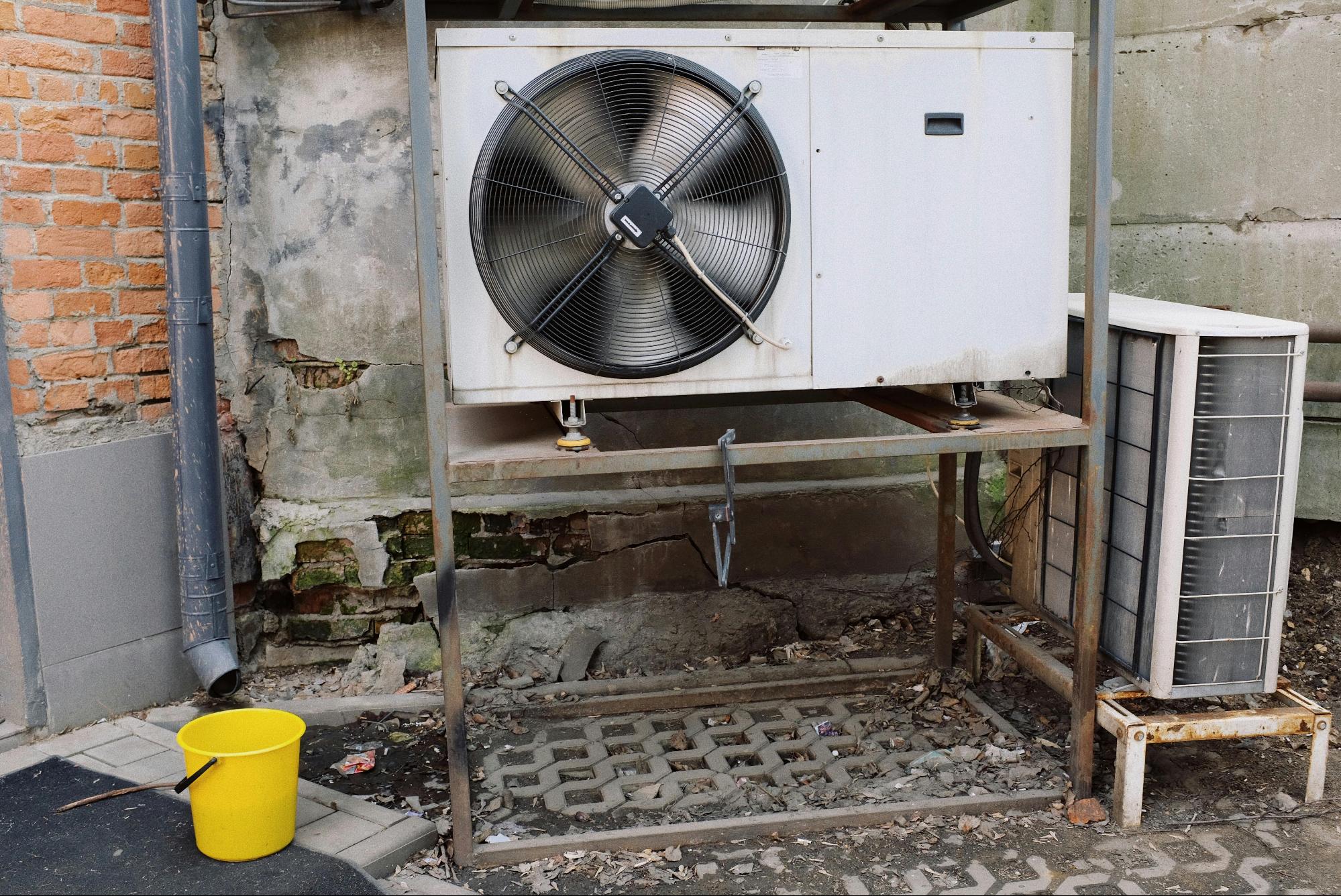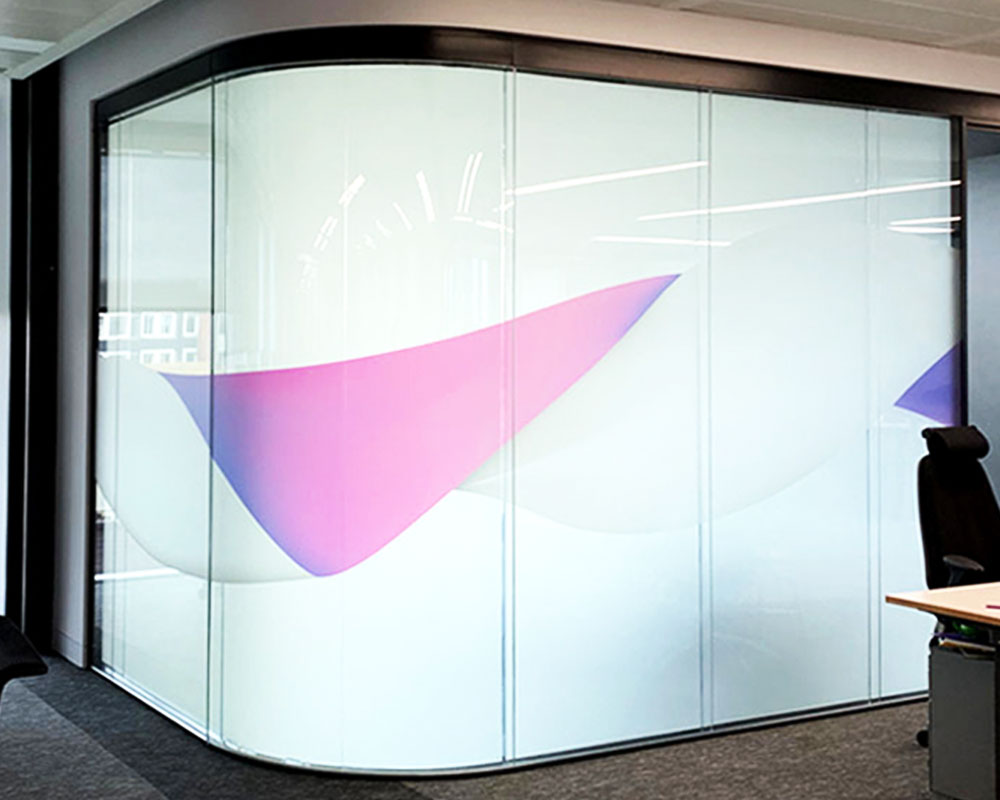Strange AC Unit Noises You Shouldn’t Ignore
If you hear a hiss, gurgle, or bang, don’t panic. An HVAC technician can easily fix AC unit noises. However, it’s important to take them seriously because they could indicate a major problem.
At the very least, you should find and repair the source of the AC sound so that it doesn’t lead to future problems. To prevent major issues, you should learn what to listen for, how to identify different sounds, and the steps you should take to fix them.
Common AC Noises and Their Causes
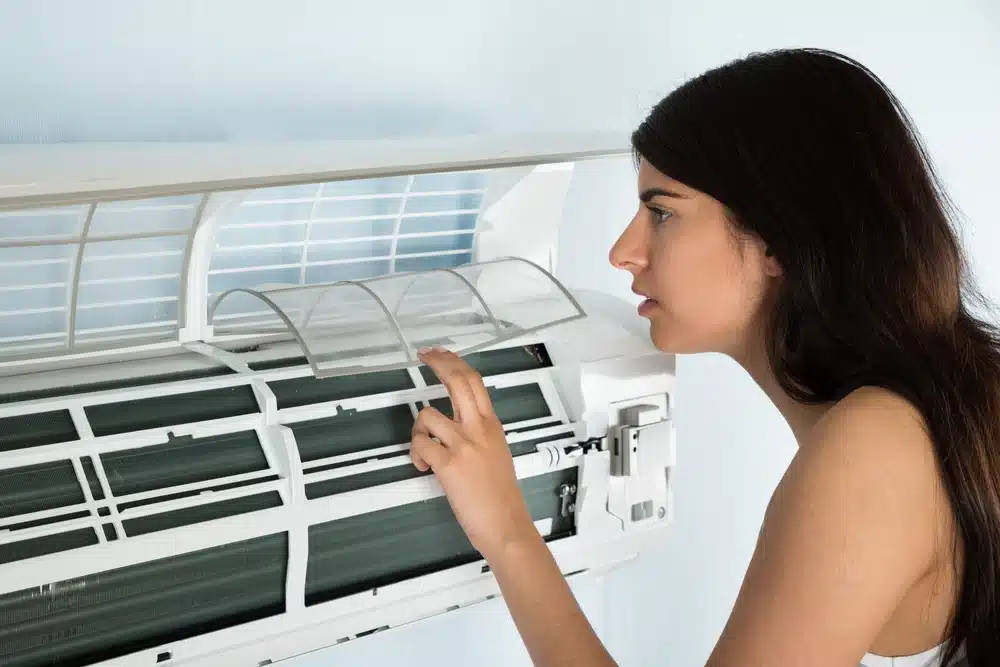
Most of the time, you don’t notice any air conditioner sounds or noises. The AC sound only stands out when it is especially loud or unusual. You should pay close attention when you hear your air conditioner making noise because it could indicate a major underlying problem.
You may notice your AC makes a variety of different noises. For example, you may hear humming, clicking, whooshing, or shrieking sounds. If you hear a loud air conditioner noise, your AC unit might be dirty and in need of service.
Why You Shouldn’t Ignore These Noises
Why is my air conditioner making noises? More importantly, how do I describe the noise to an HVAC technician?
While loud air conditioner noises or humming might be common problems, you should never ignore them. Small problems can spiral out of control if you don’t take care of them.
For example, an AC humming noise could indicate that your refrigerant is leaking out. Depending on the refrigerant type, this could be potentially dangerous for your family. Even if the underlying issue isn’t physically dangerous, it can cause extra stress on your AC. Eventually, unfixed problems can cause the entire AC system to stop working.
How to Identify Specific AC Sounds
If you notice odd AC unit noises, take a moment to listen to them. Figure out how to describe them, so you can tell an HVAC technician about the sound. Depending on how loud the air conditioner noise is, you may even be able to record it.
To identify specific sounds, check out the most common AC unit noises and what they mean.
Humming: An AC humming noise could mean that the compressor is struggling or not working properly. Likewise, undercharged or leaking refrigerant can cause the same problem. The starting capacitor might be failing.
Clicking: When you notice the AC unit making clicking noises, it means the control board, thermostat, or capacitor is faulty.
Whooshing: Often, an air conditioner makes whooshing noises because there is some type of airflow restriction. For example, you may have a dirty filter that is obstructing the airflow.
Loud Noises: You may have a loud air conditioner for various reasons. A rattling noise can happen if there are loose parts. Loud AC noises are often caused by dirt and debris inside the machine.
Shrieking: A shrieking noise is typically a sign that there is a problem with the fan motor. There could also be a problem with the motor in the compressor.
Immediate Actions to Take
If you have an air conditioner making noises, it’s important to discover the cause of the problem. First, figure out the source of the AC unit noises if you can. You may also want to record the noise so that you can replay it for the HVAC technician.
It’s important to turn off the AC as soon as you can. You don’t want to run an air conditioner if it has major problems.
Then, call an HVAC company for help. Unless you know what the cause of the problem is and how to fix it, you need an HVAC technician to diagnose the issue. Faulty DIY repairs can end up causing worse damage, so it’s important to leave the repair work to professional technicians.
When to Call for Emergency Air Conditioner Repair
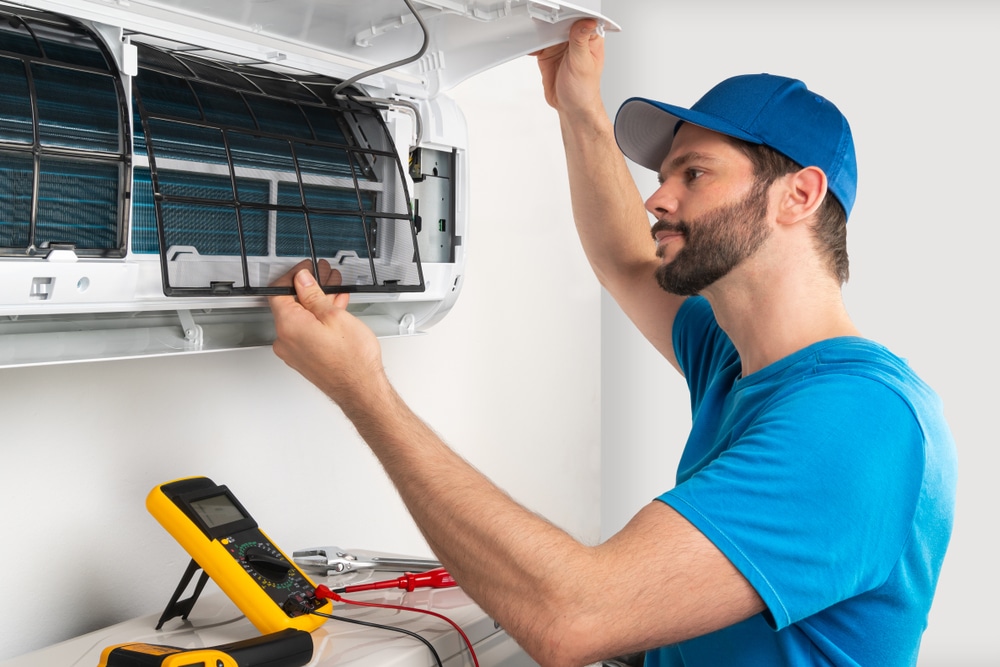
There are situations when you need to call for emergency air conditioner repair. While a loud air conditioner often means you just need to get your AC cleaned, shrieking, humming, and clicking noises could indicate major issues. In these situations, you should stop using your AC and call an HVAC company for help.
Preventative Maintenance Tips
To avoid AC unit noises in the future, it’s important to take care of your air conditioner. A few preventative maintenance tips will keep your AC in working order.
- Schedule AC maintenance twice a year.
- Trim back plants and remove debris for 2 feet around the AC. Plants and debris can restrict airflow if they’re too close to the machine.
- Clean or replace your AC filter according to the manufacturer’s specifications.
The most important thing is routine maintenance checks. During these visits, the HVAC technician will inspect your drains, heat pump, coils, and refrigerant lines for issues. They’ll clean different parts of your AC and lubricate moving parts. If there is an issue, the HVAC technician can quickly diagnose and fix it before it becomes worse.
Learn How to Take Care of Your AC
Once you notice common AC unit noises, emergency air conditioner repair services can help you diagnose and fix the problem. You don’t want your AC unit to become damaged by letting it run with faulty parts. By scheduling routine maintenance services, you can also prevent these problems from happening in the future.

